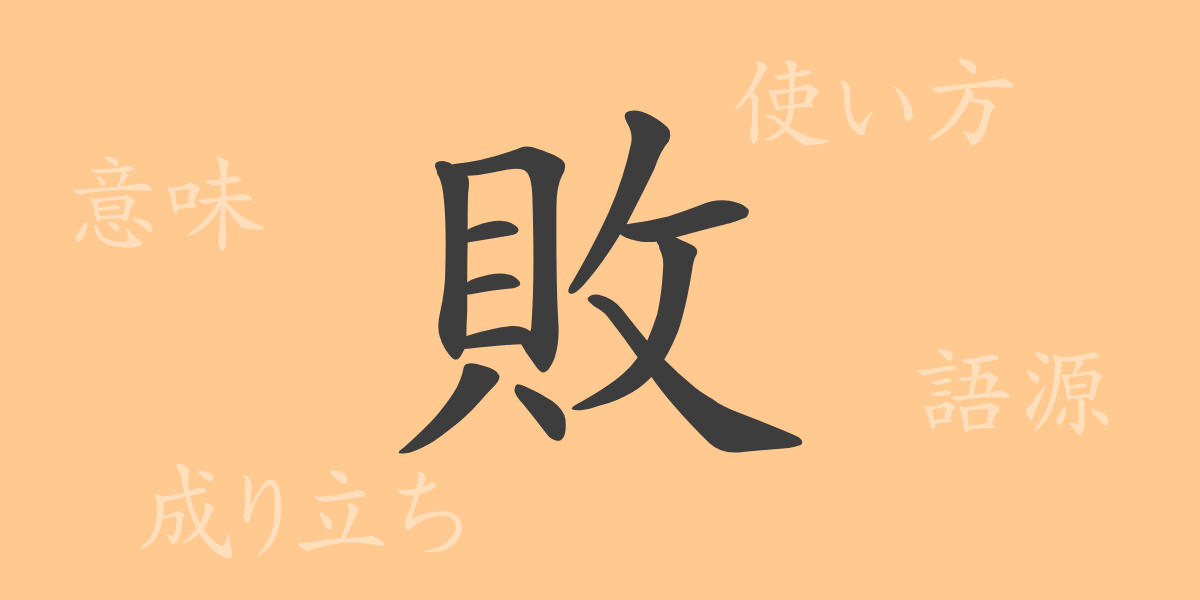The characters of the Japanese language hold deep cultural and historical significance, embodying the intricacies of the language itself. In this feature, we spotlight the Kanji “敗” (pronounced ‘はい’ (Hai)), exploring its origins, contemporary usage, and its presence in idioms and proverbs, revealing how it shapes our language and culture. This exploration into “敗” delves into its role at the pivotal moments of victory and defeat, embedding itself deeply within our words and culture.
The Origins of 敗 (はい)
The Kanji “敗” traces back to ancient China, appearing in oracle bone and bronze inscriptions. Originally depicting a broken dish, it evolved to signify defeat in battles or the breakdown and detriment of things, a meaning that carried over as the character made its way to Japan.
Meaning and Usage of 敗
“敗” primarily conveys defeat or failure, often used within contexts of competition or battle, such as in the terms “勝敗” (victory and defeat) and “失敗” (failure). It is also metaphorically employed to describe plans that come to naught, like in “計画が敗れる” (a plan fails).
Readings, Stroke Count, and Radical of 敗
The Kanji “敗” holds distinctive features related to its form and meaning:
- Readings: On-yomi (Sino-Japanese reading) is “ハイ” (Hai), with no Kun-yomi (native Japanese reading).
- Stroke count: Comprises 11 strokes.
- Radical: The radical is “攴” (ぼくづくり), relating to the act of striking.
Idioms, Phrases, and Proverbs Involving 敗
The character “敗” is prevalent in various idioms and phrases that enrich the Japanese language:
- 勝敗 (しょうはい): Refers to the outcome of a contest or battle, signifying either victory or defeat.
- 失敗 (しっぱい): Denotes a failure or unsuccessful attempt.
- 大敗 (たいはい): Describes a significant defeat.
- 敗北 (はいぼく): Generally refers to a defeat in battle or a broader sense of failure.
- 敗走 (はいそう): Means to flee in defeat.
- 敗者 (はいしゃ): The person who loses in a competition or battle.
- 敗戦 (はいせん): A defeat in a war context.
These terms are utilized in everyday conversations, business contexts, and even sports, among other scenarios.
Summary of 敗
The Kanji “敗” transcends its immediate implications of defeat or failure, embodying lessons learned and growth achieved from such experiences. It suggests that outcomes, whether positive or negative, can serve as pivotal moments in life. Thus, “敗” imbues a profound meaning beyond mere loss, offering insights each time we encounter it, encouraging resilience and progress after setbacks.

























